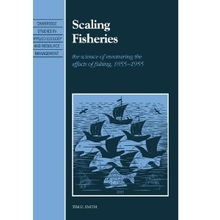Introduction:
Fishing is an ancient pastime that has been enjoyed by people of all ages and backgrounds for centuries. Whether you're looking to relax by the water, connect with nature, or simply catch a big one, mastering the art of fishing requires a blend of patience, skill, and knowledge. In this article, we'll delve into the various methods and techniques to help you become a proficient angler.
Choose the Right Equipment:
The first step in mastering fishing is to invest in the right equipment. Here's a breakdown of the essential gear you'll need:
- Rod and Reel: The choice of rod and reel depends on the type of fishing you plan to do. For freshwater fishing, a spinning rod and reel is a versatile option, while a baitcasting setup is better for casting heavier lures and larger fish.
- Line: Your line is the link between you and the fish, so choose a line that matches the type of fishing and the size of the fish you're targeting. Monofilament, fluorocarbon, and braided lines each have their advantages.
- Hooks: The type of hook you use will depend on the bait and the species of fish you're after. For example, a lightweight hook is ideal for small panfish, while a heavier hook is better for larger predators.
- Lures and Bait: Depending on your fishing style, you'll need a variety of lures and bait. Live bait can be effective for certain species, while artificial lures can mimic the movement of natural prey.
Learn the Basics of Casting:
Casting is the process of throwing your lure or bait into the water. Here are some casting techniques to help you improve your accuracy and distance:
- Teach Yourself the Basic Cast: Start by practicing the basic overhand cast, which is suitable for most situations. Hold the rod with a comfortable grip and bring it back behind your head, then release the line with a smooth motion.
- Work on Your Timing: Timing is crucial in casting. You want to release the line at the right moment to achieve the desired trajectory.
- Use the Proper Grip: The grip you use on the rod can affect your casting. Experiment with different grips to find what works best for you.
Understand Fish Behavior:
To be successful at fishing, you need to understand the behavior of the fish you're targeting. Here are some key points to consider:
- Fish Patterns: Fish often follow specific patterns, such as moving to deeper water during hot weather or to shallow water during cold weather. Learn the patterns of the fish you're targeting to find the best spots to fish.
- Food Sources: Fish are drawn to areas with abundant food sources. Look for areas with vegetation, rock structures, or areas where baitfish are present.
- Water Conditions: The clarity, temperature, and depth of the water can all influence fish behavior. Pay attention to these factors when choosing your fishing spots.
Master the Art of Baiting:
Whether you're using live bait or artificial lures, the way you present your bait can make or break your fishing experience. Here are some tips:
- Natural Movement: When using artificial lures, mimic the natural movement of the prey you're trying to imitate. For example, if you're fishing for bass, use a lure that moves like a minnow.
- Patience: When using live bait, be patient. Sometimes, the best approach is to let the bait sit still, allowing the fish to come to you.
- Adjust as Needed: If you're not getting bites, try changing your bait or presentation. Sometimes, even a slight adjustment can make a big difference.
Practice and Patience:
Like any skill, fishing takes practice. Here are some tips to help you improve:

- Start Small: Begin with simple techniques and gradually work your way up to more complex ones.
- Take Notes: Keep a journal of your fishing trips, noting the conditions, techniques, and results. This will help you learn from your experiences and improve over time.
- Be Patient: Remember that fishing is a relaxing activity, and it's not always about catching fish. Enjoy the process and the time spent outdoors.
Conclusion:
Mastering the art of fishing is a journey that combines knowledge, skill, and a deep appreciation for the natural world. By following these techniques and tips, you'll be well on your way to becoming a proficient angler. Whether you're fishing for fun, relaxation, or the thrill of the catch, the rewards of this timeless pastime are well worth the effort. Happy fishing!












